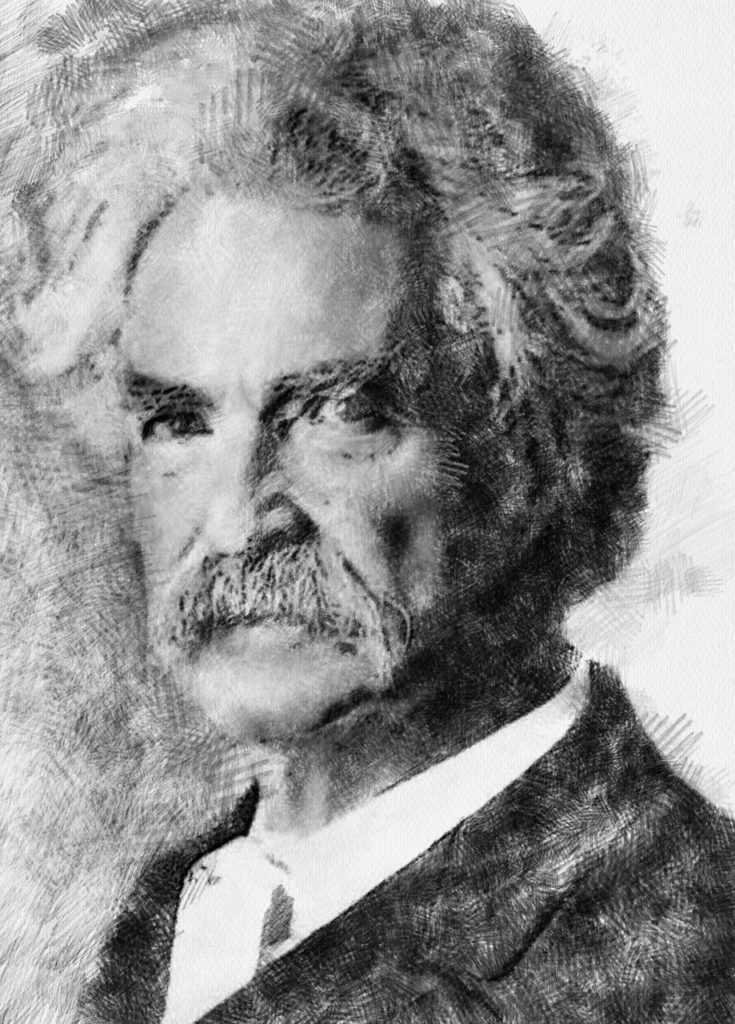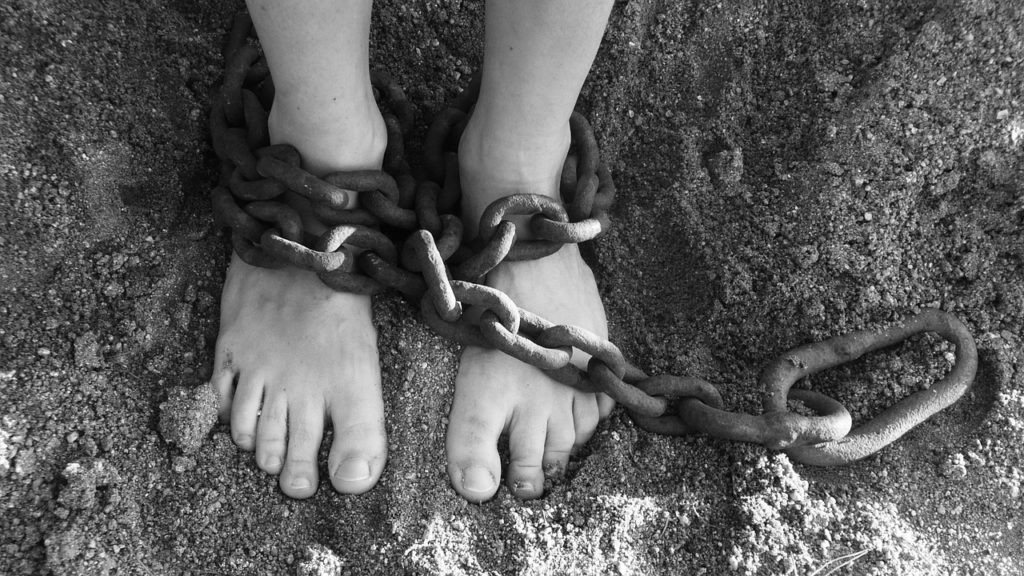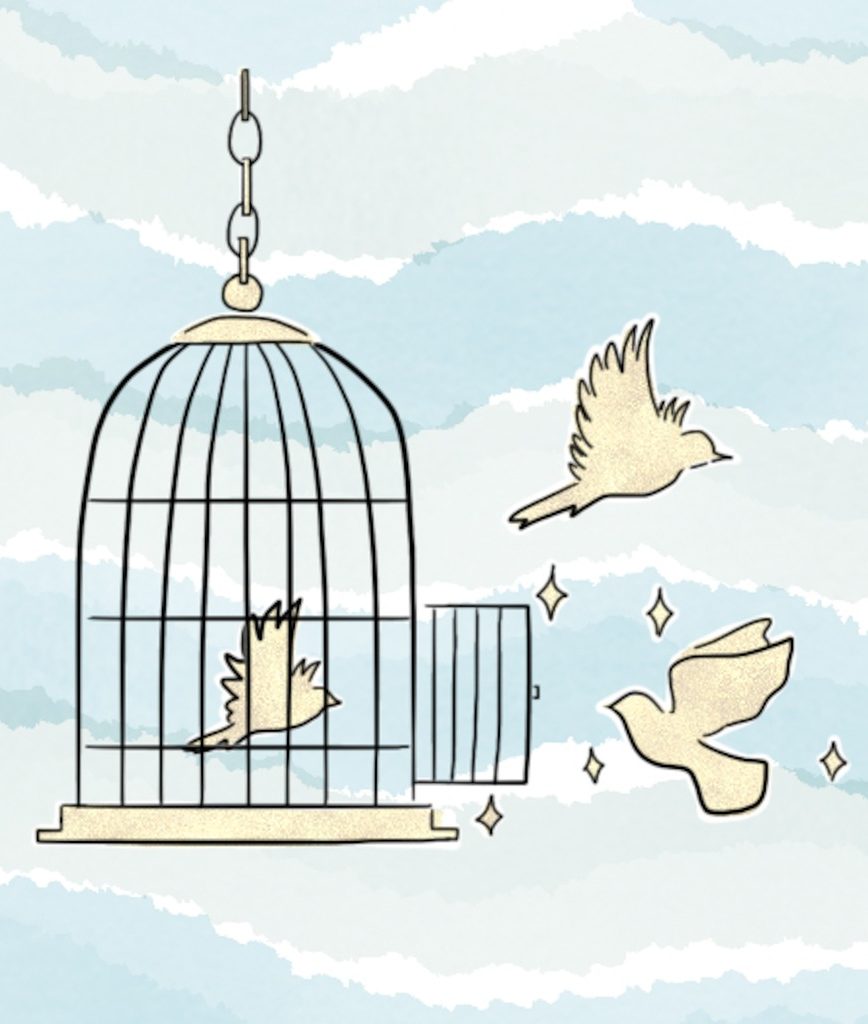“Man is the only Slave. And he is the only animal who enslaves. He has always been a slave in one form or another and has always held other slaves in bondage under him in one way or another. In our day, he is always some man’s slave for wages and does that man’s work, and this slave has other slaves under him for minor wages, and they do his work. The higher animals are the only ones who exclusively do their own work and provide their own living.”
– Mark Twain

“I was aware that many men who have accumulated more millions of money than they can ever use have shown a rabid hunger for more, and have not scrupled to cheat the ignorant and the helpless out of their poor servings in order to partially appease that appetite. I furnished a hundred different kinds of wild and tame animals the opportunity to accumulate vast stores of food but none of them would do it. The squirrels and bees and certain birds made accumulations, but stopped when they had gathered a winter’s supply, and could not be persuaded to add to it either honestly or by chicane. In order to bolster up a tottering reputation the ant pretended to store up supplies, but I was not deceived. I know the ant. These experiments convinced me that there is this difference between man and the higher animals: he is avaricious and miserly; they are not.”
– Mark Twain
What gives one group of people the right to hold another eternally captive? Because they bought the building or purchased the first licences and hold a trademark? Those would not seem to be eternal or absolute debts, albeit a trademark is not a guarantor either. What should a shared trademark be but a fee and agreement to certain standards? How are organisations delineated? How should they be? Is not such a captive organisation like a domesticated animal on a leash? How is this any less than slavery? Societies enslave people in groups instead of as individuals, and call those corporate “locations,” to be owned by people who have nothing to do with it as though perfectly natural. Are these people actually powerful or are they simply empowered by the continuance of the slave system? What is empowerment and what is real power?

The current landscape of corporatism is completely insensible. Are people working for corporations, slaves to the stockholders? Does this explain worker and applicant apathy? Especially now in the aftermath of the COVID-19 plandemic and the “Great Resignation” (Jiskrova 2022), what is the path forward? People do not want to return to work. People do not trust the corporations, or the politicians owned by them. The current generations tire of being treated like commodities. They tire of seeing the wealthiest and most powerful in their societies tied to the most brutal and horrendous crimes (Christensen 2019). They tire of being manipulated (Gopinath 2020). They tire of being lied to (Petersen 2021).
PURPOSE VERSUS PURPOSED
Workers have no purpose in their tasks and roles, when they can see all their efforts destroyed by a single quick decision or machination of some “elite.” Most working roles in the West are non-creative non-managerial production positions, non-productive managerial careers, or non-productive service jobs, all of them designed to minimise their autonomy and empowerment. Smokescreens between production and capital have been engineered surreptitiously in human resource departments and their standards, by limiting these careers into tightly configured parameters.
This is all sleight of hand organisational wizardry with the only purpose being disinheriting people from the products of their own labour. Is there any wonder that people do not wish to be a part of that sticky web called “job,” with the funky levering and extra paperwork just to keep everything in the dark? People want purpose and for their life’s labours not to be funnelled toward corruption and criminals. Workers do not want to fund wars overseas or human abuses.

VALUE OF EMPOWERMENT
Research indicates a link between empowerment and productivity (Kim 2012). There exist real organisational and efficiency benefits of implementing policies that empower workers (Asgarsani 2013). Empowerment has been positively linked to job satisfaction and performance in general (Hechanova 2006). Empowerment also has a dampening effect on burnout experienced while conserving job satisfaction in spite of the work overload (Andrews 2014). This means that empowered workers are less susceptible to burnout.
The only advantages to the current corporate arrangement belong with the owners, the stockholders. How are all the people within those organisations not slaves to stockholders and corporate intentions? Then how is freedom to be defined? Upon privileges? Thomas Jefferson was very kind to his slaves, according to all records. He encouraged them to read, write, create art, and manage their own money based on an allowance. Were they not slaves because they had such extravagant privileges? Are people who work for corporations any less slaves because they are permitted to select their own food or in which homes to live?


COST OF DISEMPOWERMENT
Corporations turn into acquisition machines and why would they not be such? The business of a corporation is never the same as the people who work for it, but to keep all those people beholden. Every corporation can be seen as being in competition with every single other one, in the business of managing people, cubicles, offices, and dental plans. This is league competition, though, and not real. The people that are managed, no matter how many privileges they are granted, are farmed by the system.
By default, the system extracts wealth out of the economy through the scheme of false growth, where all production value ends up in the future pockets of the wealthiest banks, largely through inflation. Inflation, or printing of money, is a silent tax through currency devaluation, which steals out assets from under people.
This “growth” stems from proceeds of the theft being spent before the dupes have a chance to report it, which has simply been turned into a never occurrence by law. It is adding to a stack of mud by shovelling out the mud from underneath, until the mud tower eventually dries out and crumbles. This setting of economics has effectively turned whole nations into sieves, funnelling any and all value to very small networks of individuals. By a complex system of banking and regulation practices, they are able to assure who take up the rear as billionaires, e.g., industry managers and political tyrants.
This is all very nepotistic, with loan forgiveness built into the very foundation. There are hidden procedures of distributions here that effectively hide the actual management of economies, through legislation, regulation, corrupt loan practices, and mergers. Effectively, they do steal from everyone and give it to friends and family for free. Now with artificial intelligence and decades of data, they expertly ride the inflation waves and the system has never been riper for coordinated procedures. Since the advent of artificial intelligence, in fact, there have been dramatic increases in propaganda, market chicanery, voting manipulation, and policy capture, which I do not believe are coincidences. It is further disheartening for so much evidence to exist only to have it completely unaddressed and swept away as so much happenstance. Now 65 trillion dollars has gone missing and it is likely never be tracked down (Ritchie 2022). This is corruption on a scale that is incomprehensible to the average person. There is no winning against such forces head on, since all corporate powers are heavily centralised, so what can people do?
SUMMARY
For former slaves throughout civilisation, freedom was entwined with the notion of being empowered. This was the power to make decisions, important impactful ones to their lives, with as much access to information as possible. To be a slave was to be considered incapable of making good decisions, and therefore incapable of freedom. Such a person was considered a slave of their master, but also a slave to their own whims or base predilections and unfit to be trusted for building civilisation. Many slaveholders would go out of their way to assure that their slaves stayed ignorant and obsessed in sin.
Increasingly, as society corrupts, the definitions of what builds up society and what decisions are good become less clear. This relativity too is on purpose, of course, as academically funded year after year through “foundations.” A plurality of notions of “good” mean workers are less cohesive and more argumentative, which make them not as able to organise against the corporations. Fools and traitors sit in offices of power, with the fools told they must go along with the corporate antics because of various impending emergencies. These doom politics procedures are obviously terroristic in nature.
The purpose of this series of articles is to explore the advantages of an empowered workforce. Nations benefit from an economic model of cooperative worker-ownership, through increased productivity, innovation, and flexibility in every aspect. Empowered workers are far more productive and able to overcome challenges. All this encourages local production through natural communities which is more sustainable and beneficial for everyone. Cooperatives do not stack and have less potential for overuse or misuse of resources. An economy of cooperatives is more self-policing, since the work is always where the people live, making it more difficult for big or small criminals to operate. They are more resistant to manipulation, as well, making them ideal for national security.
Andrews, M. C., & Kacmar, K. M. (2014). Easing Employee Strain: The Interactive Effects of Empowerment and Justice on the Role Overload-Strain Relationship.
Journal of Behavioral and Applied Management, 15(2), 43-58.
Asgarsani, H., Duostdar, O., & Rostami, A. G. (2013). Empowerment And Its Impact
On The Organization Productivity. Interdisciplinary Journal of Contemporary Research In Business, 4(11), 738-744.
Christensen, L., McKillop, N., & Rayment-McHugh, S. (2019). Jeffrey Epstein’s arrest is the tip of the iceberg: Human trafficking is the world’s fastest growing crime. The Conversation, 12 July 2019. USC, Queensland, Australia.
Gopinath, G. (2020). The Great Lockdown: Worst Economic Downturn Since the
Great Depression. International Monetary Fund blog. www.imf.org/en/Blogs/ Articles/2020/04/14/blog-weo-the-great-lockdown-worst-economic-downturn-sincethe-great-depression
Hechanova, M. R. M., Alampay, R. B. A., & Franco, E. P. (2006). Psychological empowerment, job satisfaction and performance among Filipino service workers. Asian Journal of Social Psychology Asian Journal of Social Psychology, 9(1), 72-78. doi:10.1111/j.1467-839X.2006.00177.x
Kim, B. P., Lee, G., Murrmann, S. K., & George, T. R. (2012). Motivational Effects of Empowerment on Employees‚ Organizational Commitment: A Mediating Role of Management Trustworthiness. Cornell Hospitality Quarterly, 53(1), 10-19. doi:10.1177/1938965511426561
Jiskrova, G. K. (2022). Impact of COVID-19 pandemic on the workforce: From psychological distress to the Great Resignation. J Epidemiol Community Health, 76(6), 525–526. doi.org/10.1136/jech-2022-218826
Petersen, M. B., Bor, A., Jørgensen, F., & Lindholt, M. F. (2021). Transparent communication about negative features of COVID-19 vaccines decreases acceptance but increases trust. Proceedings of the National Academy of Sciences, 118(29), e2024597118. https://doi.org/10.1073/pnas.2024597118
Ritchie, G. (2022, December 5). ‘Huge, Missing and Growing:’ $65 Trillion in Dollar
Debt Sparks Concern. Bloomberg.Com. www.bloomberg.com/news/articles/2022-12-05/-missing-65-trillion-in-derivatives-dollar-debt-sparks-concern

